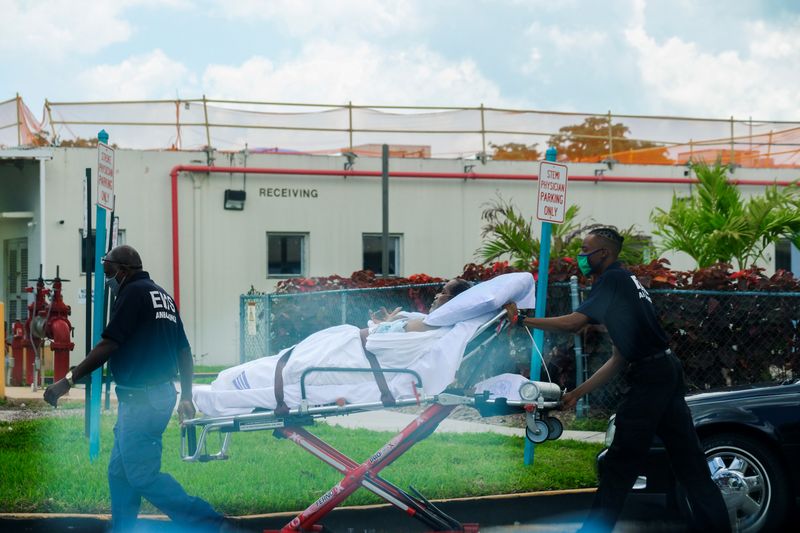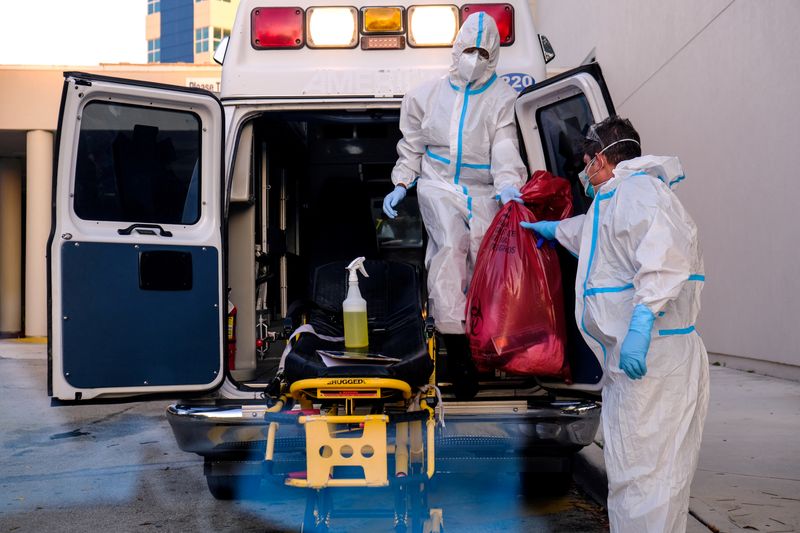(Reuters) – Florida on Sunday became the second state after California to overtake New York, the worst-hit state at the start of the U.S. novel coronavirus outbreak, according to a Reuters tally.
Total COVID-19 cases in the Sunshine State rose by 9,300 to 423,855 on Sunday, just one place behind California, which now leads the country with 448,497 cases. New York is in third place with 415,827 cases.
Still, New York has recorded the most deaths of any U.S. state at more than 32,000 with Florida in eighth place with nearly 6,000 deaths.
On average, Florida has added more than 10,000 cases a day in July while California has been adding 8,300 cases a day and New York has been adding 700 cases.
The surge in Florida has continued as the state’s Republican Governor Ron DeSantis has repeatedly said he will not make mask-wearing mandatory and that schools must reopen in August.
On the contrary, New York state has managed to get the virus under control, with stores and restaurants shuttered and the wearing of masks mandatory.
The rise in cases also comes as President Donald Trump is pushing to re-open U.S. schools in the fall, despite teachers’ and families’ concerns that children could contract or transmit the disease should they return to the classroom.
After New York, Texas has the most total coronavirus cases at 391,000. Texas Governor Greg Abbott said Tropical Storm Hanna, which made landfall on Saturday as a Category 1 hurricane, was especially challenging as it was sweeping through an area of the state that has been the worst hit by the coronavirus.
For the tenth time in July, Alaska set a record for a one-day rise in cases, with 234 new infections on Sunday, bringing the state’s total to 3,100. Oklahoma hit a record for new cases five times in July, with 1,204 new infections on Sunday bringing the state’s total to 31,285.
More than 146,000 Americans have died of COVID-19 – nearly a quarter of the global total — and there are nearly 4.2 million confirmed cases in the country, or at least 1 in 79 people have been infected.
(Reporting by Diane Craft; Editing by Lisa Shumaker and Daniel Wallis)


























